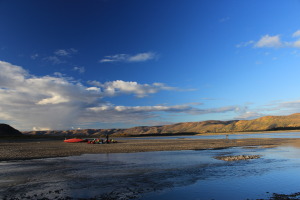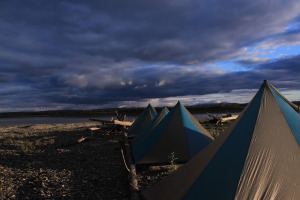The Yukon
September 1 – September 20
This September Outdoor Studies at Alaska Pacific University did something different. Sixteen of us, twelve students and four instructors, paddled 500 miles of the Yukon River. We were on the river for 20 days. Consumed more than 700 lbs of food, presented more than fifty classes, and read aloud each morning from Dan O’Neil and Velma Wallis. As Brian Doyle’s photographs take shape, imagine the trip in two parts: First the Yukon Charlie National Preserve, where the river flows through the mountains and where the histories of the gold rush are preserved by the National Park Service. And the Yukon flats, where the river spreads out and where Alaska Natives still live a subsistence life style.


The curriculum was finished. Ahead of us were long days, cold days, fifty mile days. When the end came, when the bridge was in view, we rafted up, drifted together, leaning back over packs and stern plates, our boots on the gunnels, the evening sun in our eyes.
David McGivern
